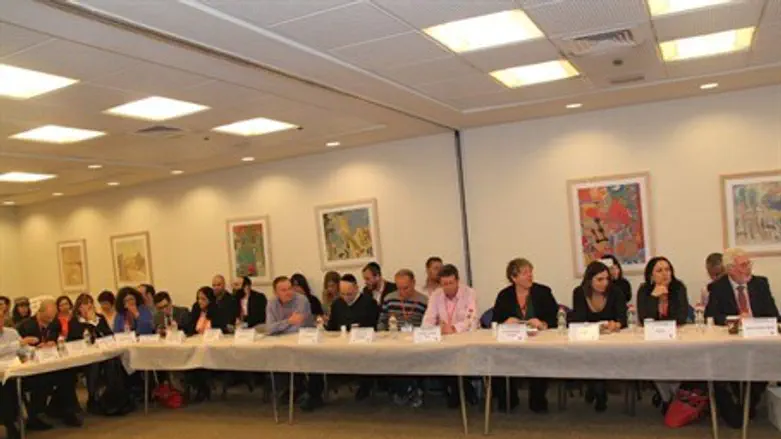
Economics Minister Naftali Bennett on Monday led a round-table discussion on the employment situation in the hareidi community. Participating in the event were 80 officials from various government offices, along with business owners, corporate executives, academics, and representatives of the hareidi community. Among those participating were representatives of companies like Intel, Amdocs, Osem, and Teva, along with officials from the Jerusalem municipality, the Israel Employment Service, and the Joint Distribution Committee.
Among the topics discussed were how to increase the participation of members of the hareidi community in the workplace, and how prepared the Israeli economy was to absorb them. In the wake of the new draft law being hammered out by MKs, tens of thousands of members of the hareidi community are expected to seek job training and employment in the coming years.
That, said Bennett, was likely to take place within four years. “Absorbing hareidi Israelis into the workplace is a national mission, and it is set to begin in the coming weeks,” after the Knesset committee led by MK Ayelet Shaked hammers out the final version of the new bill that will require many more hareidi Israelis to join the IDF. “The absorption of hareidi Israelis in the workplace will have an impact on all Israelis,” Bennett said. “It is also in the interest of employers” to have a well-trained pool of employees, he added.
MK Amnon Cohen (Shas) said that as a member of the hareidi community, “we were very impressed with the professional work being done by the Economics Ministry on this matter. There is a clear intention to deal with issues and problems that were raised by members of the community. I believe that we will be able to move forward,” he said.
Currently, the employment rate for hareidi Israelis is 44.5%, far lower than the 67% average for the country overall. Officials are expecting the hareidi workforce to grow by 30,000 by 2020, out of a total of 50,000 new workers the economy will absorb by that time. Under the proposed draft law, approximately 23,000 hareidi Israelis who have not served in the IDF will be eligible to seek work in the coming months, officials said.